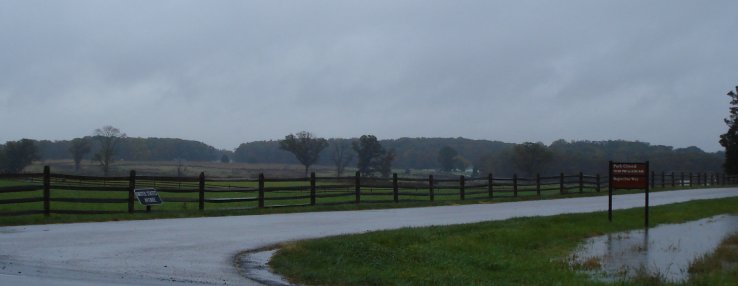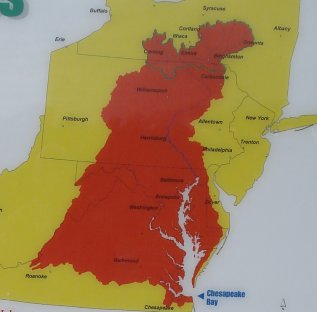
We are starting to notice the remarkable, game changing development in energy. Scientists have discovered a new way to get natural gas out of shale. They call it hydraulic-fracturing. And there is a lot of potential. This new technique has increased American gas reserves by something like 39% in the last couple of years. Experts estimate that we have as much usable gas in the U.S. as the Saudis have oil and if only half of our coal powered plants converted to cleaner burning natural gas we could easily reach our greenhouse gas reduction goals.
Gas is cleaner than oil and much cleaner than coal, both in terms of actual pollution and in terms of greenhouse gases such as CO2. Another important consideration is that WE have our own vast new supplies of gas. Most exportable oil is under corrupt, unfriendly or unstable countries. It is better not to send American money to some of these guys. Our gas, on the other hand, is in peaceful, pleasant American places like Pennsylvania, New York, Maryland and West Virginia. Many of these rural areas could use the jobs that domestic natural gas could bring.
I traveled though much of the area where the gas is when I drove from Syracuse to Virginia. It is the same area where we did a lot of coal mining. This is no coincidence. The same forces that turned Paleozoic plants into coal also made gas. The gas is trapped in shale formations and you can easily see how the roads were cut through the shale formations.

But I noticed something else about the geography of natural gas. It is also the geography of the Chesapeake Bay watershed and much of the water that isn’t running off into the Chesapeake flows into the Great Lakes. We worry about these bodies of water. While listening to local radio driving near Wilkes-Barre, PA I heard reports of firms extracting gas were asking permission to discharge water into the local streams. The HYDRO part of hydraulic-fracturing has to go somewhere. I don’t know the details of the process, nor do I know about the quality of the water discharge, but I do know that any discharge in large enough amounts is going to create disruptions in the local ecosystem, in this case the Chesapeake Bay watershed. Some people are already raising concerns. The process may turn out to be benign. It could even be beneficial if the water is clean, but we will have to think of this as a balancing among priorities.
Yesterday’s solutions are today’s problems and it follows that today’s solutions will be tomorrow’s problems. Abundant American natural gas will help free us from nasty foreign oil suppliers and help us reach climate change goals, no doubt at the cost of something in the future. This is not necessarily a failure of wisdom or judgment. It is an ordinary consequence of making choices, setting priorities and doing these things in the context of imperfect information. All these things are part of the definition of decision making.

Future critics with access to much more information as well as the experience of the past can easily attack earlier choices, but the comparison is usually unfair, as it is always unfair to compare hypothetical solutions with a real ones.
For now the smart move looks like going for the gas.
